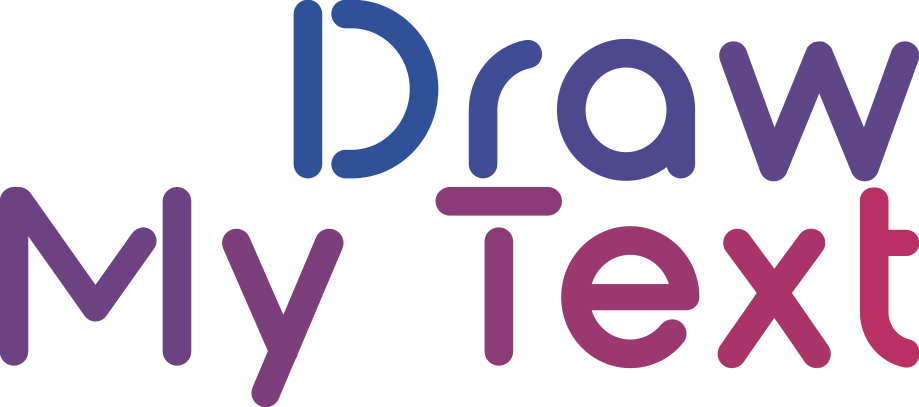
What Can GPT-4 Do? Exploring Its Features and Capabilities
January 7, 2024
Generative AI in Art: Blurring the Lines Between Human and Machine
January 7, 2024Hello, fellow AI enthusiasts and seekers of technological wisdom! Today, I’m thrilled to dive into a topic that intertwines the cutting-edge of tech with the timeless questions of morality: The Ethical Debate of Generative AI: Balancing Innovation with Integrity. As we navigate this complex landscape together, prepare to be both enlightened and challenged in your perspectives.
Generative AI is a burgeoning field that has taken the world by storm, with capabilities expanding from text-to-image generation to creating music and literary works. While this innovation horizon brims with potential, it beckons us to ponder the ethical implications deeply. So, let’s get ready for a thought-provoking journey into the heart of generative AI ethics!
The Ethical Debate of Generative AI: A Closer Look
Generative AI stands at the forefront of machine learning, leveraging algorithms to create new, original content from learned data. At its core resides a thrilling potential for advancement, yet it flirts with the boundaries of what we consider ethically sound. From digital personhood to intellectual property rights, these are waters we must navigate with care.
The question that persists is not just “Can we?” but “Should we?” This question encapsulates the ethical implications of generative AI and stirs a dialogue that transcends scientific circles, engaging philosophers, policymakers, and the public alike. Whether it’s the authenticity of AI-generated art or the implications of AI-powered disinformation, we’re in the midst of an era-defining debate.
Recent publications have brought to light the necessity for ethical frameworks that guide generative AI’s development. Experts from diverse fields emphasize the importance of aligning these AI systems with human values while ensuring fair and equitable outcomes. This is not just an academic exercise but a real-world imperative.
Understanding the Ethical Implications of Generative AI
The ethical implications of generative AI stretch across various domains. For instance, the OECD highlights the need for AI that respects human rights and democratic values. Similarly, issues of transparency, accountability, and bias within AI models are receiving increased scrutiny.
Moreover, the economic impact of AI, including generative models, could be profound. On one hand, it holds the promise of unparalleled efficiency and innovation; on the other, it propels discussions around job displacement and inequality. The narrative of AI’s impact on labor is a dual-edged sword that requires careful moral and economic considerations.
Another critical aspect revolves around AI-generated content’s authenticity. With the capacity to churn out deepfakes and believable synthetic media, generative AI poses profound challenges to the integrity of information and media. Indeed, balancing innovation with such concerns is not a trivial task and demands a multifaceted approach involving technologists, ethicists, and legislators alike.
Striking a Balance: Innovation, Integrity, and DrawMyText
In the realm of innovation, the possibilities are endless. Platforms such as DrawMyText showcase the creative and commercial potential of generative AI. By turning plain text into vivid images, DrawMyText is a testament to generative AI’s revolutionary capabilities. For those interested in being a part of this creative explosion, I warmly invite you to subscribe to our premium text-to-image generation platform.
Speaking of innovation and ethics, it’s critical for platforms like DrawMyText to adhere to the highest standards of integrity. With competitive pricing and features that prioritize user control and content originality, subscribers can trust that their creations are not just unique but also ethically sound.
As we advocate for such platforms and revel in the marvels they deliver, it’s important to circle back to our foundational debate: how do we balance this rapid innovation with steadfast integrity? The key lies in an ongoing commitment to ethical guidelines and transparent practices that align AI’s capabilities with humanity’s collective values.
Navigating the Future with Ethical Guidance
As a seasoned AI expert, I believe the path forward is through a synergistic approach. Engaging in cross-disciplinary dialogues to construct ethical guidelines and having regulatory bodies overseeing AI’s development and deployment are crucial steps. The objective is not to stifle innovation but to ensure it flourishes within a framework that promotes the common good.
Furthermore, incorporating ethics into AI education and fostering a culture of responsible AI innovation are proactive measures. Alongside, providing channels for public engagement and discourse ensures that a diverse range of perspectives is considered, adhering to democratic principles in the evolution of AI governance.
Ultimately, generative AI should aim to enrich and augment human capabilities, not replace or undermine them. As stewards of this technology, it is our combined responsibility to preserve human dignity, creativity, and freedom as AI reshapes our world. The ethical debate is not just a footnote in the annals of AI but the script by which we must navigate the unfolding narrative of generative AI’s legacy.
Frequently Asked Questions (FAQs)
What is generative AI, and why is it significant?
Generative AI refers to artificial intelligence technologies that can generate novel content, such as images, text, and audio, based on patterns learned from data. Its significance lies in its vast potential for creativity and innovation across industries, leading to revolutionary applications.
What are the major ethical concerns related to generative AI?
The major ethical concerns include issues of intellectual property rights, the authenticity of AI-generated content, potential job displacement, biases and fairness in AI models, and the impact on information integrity due to deepfakes and synthetic media.
How can we balance innovation with ethical concerns in generative AI?
We can strike a balance by establishing and adhering to ethical guidelines, engaging in cross-disciplinary dialogues, involving regulatory bodies, and fostering a culture of responsible AI where innovation is pursued alongside the promotion of human values and rights.
Are there regulatory frameworks in place for generative AI?
While there are existing guidelines and principles, such as those proposed by the OECD, specific and enforceable regulatory frameworks for generative AI are still in development. Discussions around regulation are ongoing as the technology evolves.
Is it possible to subscribe to ethical AI platforms like DrawMyText?
Absolutely! Platforms like DrawMyText not only enable users to explore the creative potential of generative AI but also prioritize ethical practices. You can subscribe to their services, ensuring that your use of AI for creativity is aligned with integrity.
Shaping a Future United by Ethical AI
Before concluding, I thank you for embarking on this exploration of the ethical implications of generative AI with me. As a passionate advocate for responsible AI, it is my hope that our discourse fuels not just thought but action towards a future where innovation and integrity are not trade-offs but mutual guarantees.
To those inspired to wield the power of generative AI ethically, remember platforms like DrawMyText are at your service, weaving technology with transparency. If you’re ready to explore the artistry of AI while upholding ethical standards, head over to DrawMyText and join a community that celebrates creativity with conscience.
In the grand tapestry of AI, let’s be the weavers of a narrative that honors human integrity as much as it does technological ingenuity. Here’s to a future brightened by AI and grounded in the values that define us. Until next time, stay curious, stay ethical, and keep innovating! 😊
Keywords and related intents:
Keywords:
1. Generative AI
2. Ethical Debate
3. Innovation
4. Integrity
5. Intellectual Property Rights
6. Biases and Fairness
7. Deepfakes
8. Ethical Guidelines
9. Regulatory Frameworks
10. DrawMyText
Search Intents:
1. The significance and capabilities of generative AI.
2. Ethical considerations in the development and use of generative AI.
3. Impact of generative AI on artistic creation and ownership.
4. The role of fairness and addressing biases within AI models.
5. Challenges and solutions for preventing deepfakes and synthetic media misuse.
6. Strategies for establishing ethical frameworks for AI technologies.
7. Current regulatory measures and future requirements for governing generative AI.
8. Exploring platforms like DrawMyText for ethically-generated creative content.
9. How to subscribe to and utilize ethical AI services like DrawMyText.
10. The importance of cross-disciplinary dialogue in shaping the future of ethical AI.
#ethical implications of generative ai
#Ethical #Debate #Generative #Balancing #Innovation #Integrity


